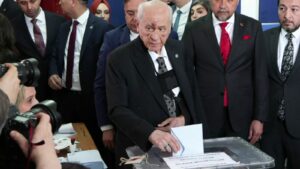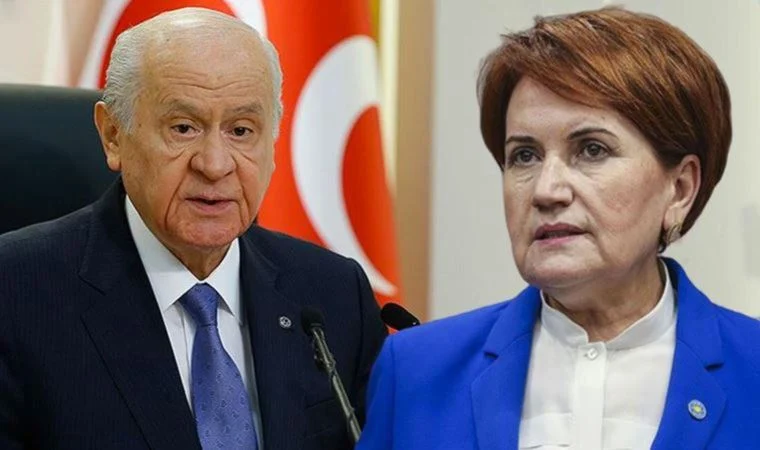Support for both Turkey’s ruling-party ally and nationalist opposition parties saw a significant decline in Sunday’s local elections following a campaign marked by less intense rhetoric compared to the run-up to the general election held last May.
Among the nationalist parties that lost voters in the local polls are the far-right Nationalist Movement Party (MHP), an ally of President Recep Tayyip Erdoğan; the opposition İYİ (Good) Party; and the far-right, anti-refugee Victory Party (ZP).
In the 2019 elections, the MHP won in 11 provinces, including one major city, Manisa, and 135 districts. However, in Sunday’s elections, the party only managed to secure eight provinces and 122 districts.
Although the İYİ Party won the central Turkish province of Nevşehir and 24 districts in Sunday’s election, its vote share decreased from 7.45 percent in 2019 and 9.9 percent in last year’s election to 3.77 percent in 2024.
The ZP, founded in 2021, received only 1.74 percent of the vote on Sunday, marking a significant decline from the 2.3 percent it secured in the parliamentary elections in May.
One of the reasons for the decline in the İYİ Party’s vote share is that the party nominated its own candidates in all provinces for the 2024 local elections and didn’t make any alliance with its former ally, the main opposition Republican People’s Party (CHP).
The CHP was the leading party in Sunday’s elections, with 37.7 percent of the vote.
One contributing factor was the pro-Kurdish Peoples’ Equality and Democracy Party’s (DEM Party) decision to field its own candidates in Sunday’s elections and refrain from forming an alliance with the CHP. This move prevented the ruling Justice and Development Party (AKP) from accusing the CHP of supporting terrorism and thus thwarted the governing alliance, including the MHP, from increasing its votes using nationalist rhetoric.
Pro-Kurdish party members or politicians in Turkey are frequently accused of having links to the outlawed Kurdistan Workers’ Party (PKK), which has been waging a bloody campaign in Turkey’s southeast since 1984 and is listed as a terrorist organization by Turkey and its Western allies.

The presence of MHP leader Bahçeli, 76, at the polling station despite having bruises on his face and a bandaged arm following an accident at home showed the gravity of the situation for his party.
Meanwhile, İYİ Party leader Meral Akşener, who was rumored to be resigning after a significant loss of votes in the election, addressed the media on Monday, stating that the party will hold an extraordinary congress.
Experts argue that instead of shifting her rhetoric towards the center, Akşener opted to compete with the MHP, attempting to adopt a more nationalist and statist stance than them, disregarding the people, law and human rights and starting to use the same rhetoric as Erdoğan while opposing him. They say the İYİ leader, knowingly or unknowingly, killed the party’s potential to be an alternative to Erdoğan and his ruling AKP and fill the void on the center-right.

